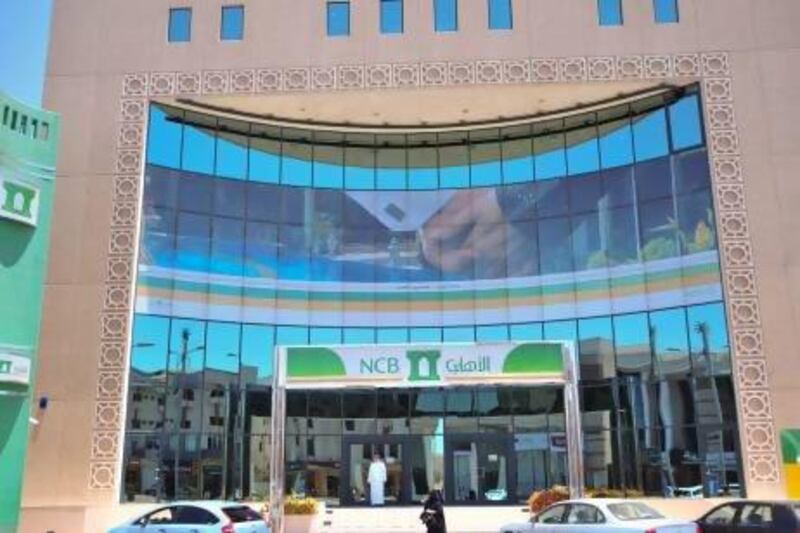Their recent strong performance shows that Saudi banks have largely shrugged off the financial effects of the biggest corporate meltdown in the country's history, the Al Gosaibi-Saad Group affair.
But with billions of dollars worth of loans still unpaid and animosity between the two apparently unresolvable, the repercussions of the 2009 scandal continue to resonate in the country's financial community and in courtrooms across three continents.
Negotiations in the kingdom are proceeding slowly between the family partnership Ahmad Hamad Al Gosaibi and Brothers (Ahab) and a group of nine Saudi banks that have claimed at least US$2.4 billion (Dh8.81bn) in unpaid loans to the holding company, which was one of the country's oldest and most respected business dynasties.
It has varied interests that include construction, property and finance and a valuable bottling plant for the Pepsi drinks company.
Some of the kingdom's biggest financial institutions, such as Saudi Investment Bank, Al Rajhi Bank and National Commercial Bank, known as NCB, claim they are owed billions of riyals as a result of the default of Al Gosaibi-related companies in 2009.
In addition, more than 100 foreign banks, including some of the biggest financial institutions in the world, claim to be out of pocket to the tune of about $12bn.
Al Gosaibi, in turn, blames the financial problems on Maan Al Sanea, the founder of Saad Group, who is related to the Al Gosaibi family by marriage. They claim he was responsible for fraud, theft and forgery that cost them some $9bn at the height of the financial crisis, rendering them unable to pay their debts.
Mr Al Sanea has consistently denied these charges and claimed the family was aware of and gave approval to the transactions - now the subject of court proceedings in New York, the Cayman Islands, London, Switzerland, the UAE and Bahrain.
But despite the international legal war waged between Al Gosaibi and Mr Al Sanea over three years, and despite court actions by foreign creditors across the world, the heart of the affair continues to be Saudi Arabia.
When two banks in Bahrain, connected to Al Gosaibi and Saad, defaulted on debt in spring 2009, the shock waves were felt immediately in the kingdom. The authorities there imposed asset freezes on Al Gosaibi and Saad businesses and slapped travel bans on executives of the two companies. Those sanctions are still in place.
A top-level Saudi government committee was set up to find a solution to the affair, and it ordered the sides to reach a settlement with creditors.
Mr Al Sanea says he reached a deal with Saudi creditors within months of the default, although no details of that deal have been confirmed.
Al Gosaibi, on the other hand, has been in on-off talks with the Saudi banks for the past three years. Progress in those negotiations has been slow, according to people familiar with the situation, but in recent months there have been signs that the talks are heading towards some kind of agreement.
"We continue to remain in dialogue with the banks, and that is an active dialogue," says Eric Lewis, the New York lawyer in charge of the global legal campaign by the Al Gosaibis.
The problem is that the group does not appear to have the resources to settle the domestic claims, let alone the debts of foreign bankers.
A schedule of assets submitted to a London court in 2011 showed billions of riyals worth of assets. But many of these were in the form of land and property of uncertain value, or in the form of shares in Saudi companies that were either already pledged to creditors or subject to the asset freeze.
This includes what some creditors regard as the most valuable remaining asset in the Al Gosaibi business, the Pepsi bottling plant operating in Al Khobar in the kingdom's eastern province. This was estimated to have a value of $160 million in the London court filings, but was also marked "restricted" by the government asset freeze.
Speculation has persisted that the Pepsi plant has already been pledged to creditors or even sold to a trade buyer to raise cash. Al Gosaibi representatives decline to comment on these rumours.
For the Al Gosaibi family, the need to reach a settlement is increasingly urgent. Their business has been in a state of suspended animation for the past three years, many family members have been unable to travel outside the kingdom and there are serious questions about the long-term solvency of one of Saudi Arabia's oldest businesses.
The rest of the Saudi financial community may have moved on but for the Al Gosaibis and the small army of lawyers, accountants and other advisers involved on both sides of the most bitter business dispute ever to surface in the kingdom, it is still very much a live issue.





